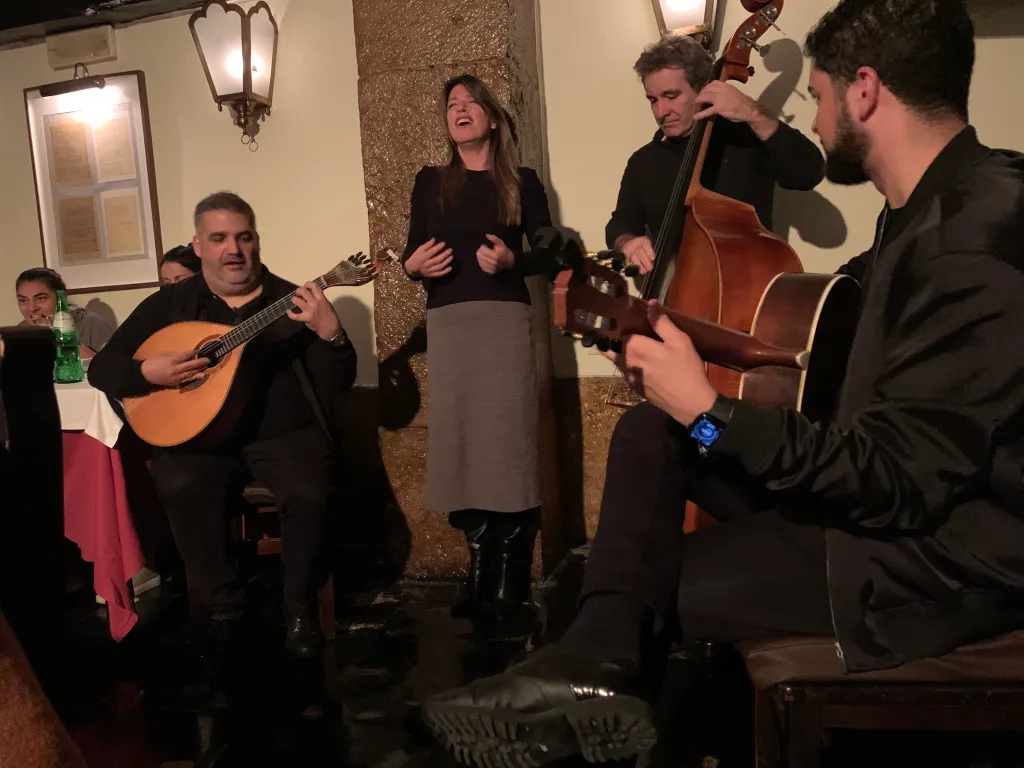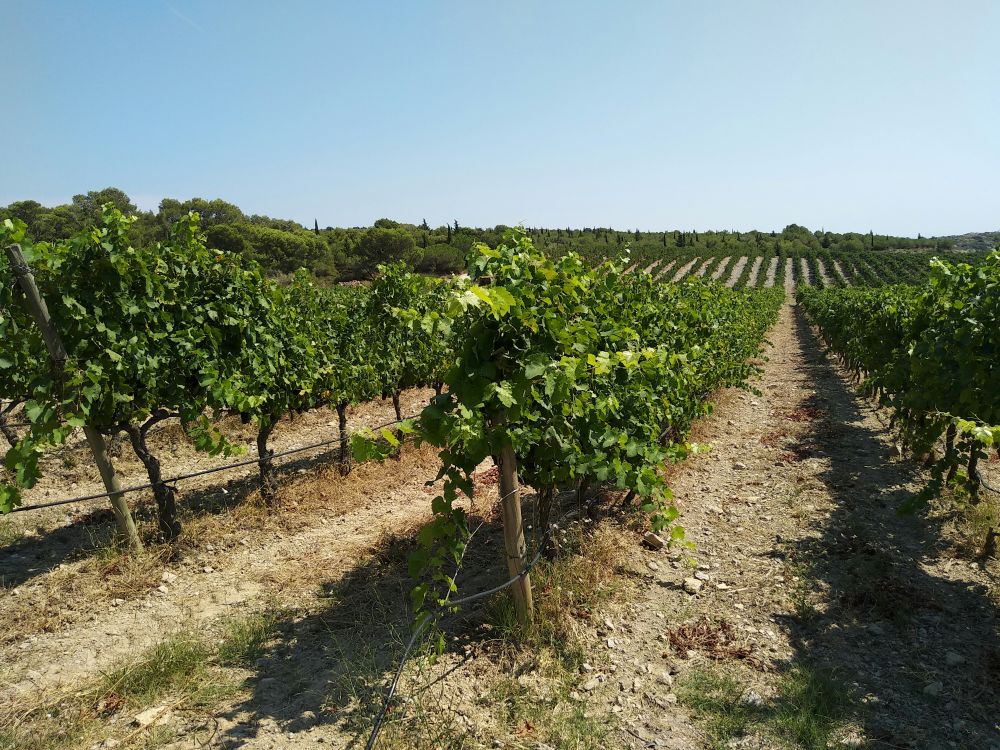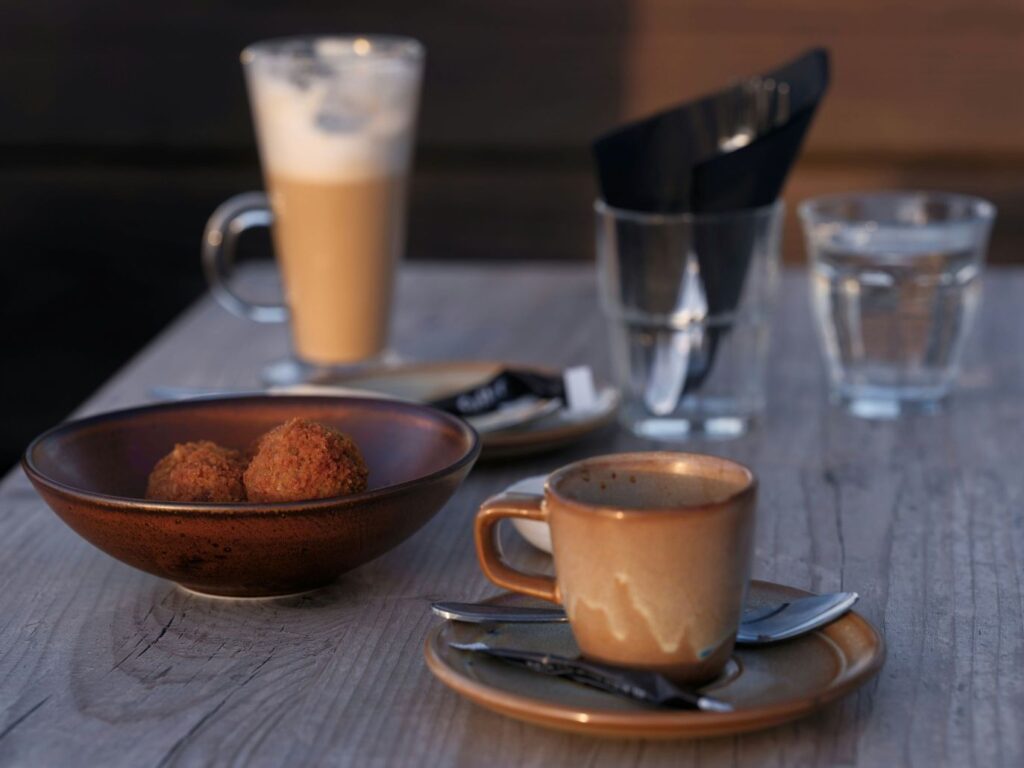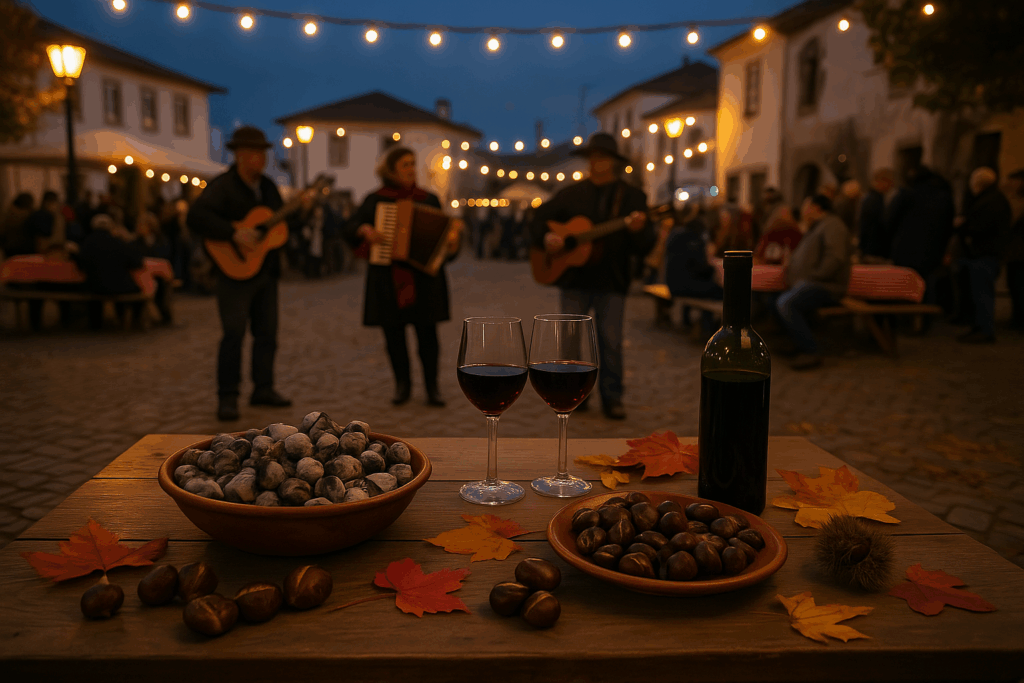Portugal isn’t just postcard-perfect coastlines — it’s soulful, storied, and steeped in tradition. Beyond the cobbled alleys of Lisbon and the Douro’s terraced vineyards lies a world of cultural experiences Portugal is quietly proud of. For travelers seeking something more meaningful than a checklist of sights, these encounters reveal a rare kind of depth.
What makes it special is not just the heritage buildings or timeworn churches, but the living stories woven through its people, crafts, and flavors. Whether it’s a centuries-old bakery in Évora or a twilight Fado performance in a tucked-away Alfama tavern, cultural experiences Portugal offers are as authentic as they are unforgettable. This is not about doing more — it’s about feeling more.
Travelers with a passion for meaningful cultural immersion often compare their experiences across destinations. Those who enjoyed the hands-on artisan workshops described in our Marrakech cultural itinerary or the elegance of Kyoto’s tea traditions find Portugal offers that same richness, but in its own quietly charismatic way. Cultural experiences Portugal shares aren’t loud or flashy — they’re poetic, patient, and proudly local.
To fully appreciate what makes Portugal so unique, it helps to slow down, look closely, and let go of the expected. While travel guides may focus on castles and coastlines, the real cultural soul of Portugal lives in its markets, music, and mealtime rituals. Much like in Ireland, where folklore and storytelling form a cultural backbone, Portuguese traditions endure in ways that are both sacred and celebratory.
So if you’re ready to experience Portugal beyond the tourist façade, this guide is your invitation to dive deep. From coastal villages to cork forests, we’ll explore the most authentic cultural experiences Portugal has to offer — and share the local secrets that bring them to life.
Why Cultural Experiences in Portugal Matter More Than Ever

Portugal is more than its dramatic cliffs and sun-kissed coasts. It’s a mosaic of cultures shaped by Romans, Moors, and seafaring explorers. This unique blend has created a country where every tile, melody, and market tells a story. In a world increasingly drawn to fast itineraries, cultural experiences Portugal offers stand out for their depth and authenticity.
These experiences resonate with travelers who crave more than just sightseeing. In Portugal, immersive cultural travel is not reserved for museums — it’s woven into everyday life. From watching a craftsman carve cork by hand to hearing Fado echo through an old alleyway, there’s a sense of intimacy here. Much like in Ireland’s cultural villages, where folklore and family traditions thrive, Portugal invites visitors into its living history.
Now, more than ever, people are craving slower, more meaningful journeys. Travelers are moving toward deeper, place-based experiences over fleeting photo ops. This shift explains the rising interest in cultural experiences Portugal provides — they offer something social media can’t capture: connection. Whether through food, music, or conversation, the joy of feeling part of a place creates lasting memories that no algorithm can deliver.
Lisbon’s Timeless Soul – Hidden Culture in Plain Sight
Lisbon offers more than postcard viewpoints and historic trams. Its true magic lives in neighborhoods where time slows and tradition endures. Tucked between the hills and the river, travelers discover some of the most immersive cultural experiences Portugal has to offer.
Wandering through Lisbon’s backstreets is like stepping into a living museum. Local culture thrives not in museums but in bakeries, taverns, and tiled courtyards. While many cities have lost touch with their roots, Lisbon continues to celebrate its deep artistic and musical heritage. As in Kyoto’s preserved traditions, much of Lisbon’s charm lies in its understated authenticity.
It’s here, in places like Alfama and Mouraria, that the city’s soul is most visible. These districts hold generations of memory in their cobblestones. Visitors who skip them miss the heartbeat of Lisbon. Fortunately, exploring these areas doesn’t require a checklist — just curiosity, a bit of time, and maybe a reservation or two.
Alfama’s Fado Nights
In Alfama, music becomes memory. As night falls, locals slip into neighborhood taverns to hear voices rise in bittersweet harmony. These aren’t tourist showcases — they’re raw, emotional performances rooted in daily life. Experiencing this is one of the most moving cultural experiences Portugal provides.
Fado, declared Intangible Cultural Heritage by UNESCO, tells stories of longing, loss, and love. It’s sung in dim corners, often accompanied by little more than a glass of wine and a Portuguese guitar. It’s not about polished perfection but soulful truth.
To experience Fado without the crowds, book a local-guided Fado crawl. These curated evenings pair cozy taverns with storytelling and wine tasting. Guides often share personal history and neighborhood insight that adds even more texture to the evening. You’ll walk, listen, sip, and feel every note. It’s not just entertainment — it’s emotion in its purest form.
Artisan Tile Makers in Mouraria
Not far from Alfama lies Mouraria, another district brimming with cultural pride. Here, the focus shifts from sound to color. On nearly every corner, Lisbon’s iconic azulejos — hand-painted ceramic tiles — glint in the sun. But few know that behind the scenes, small studios are reviving this centuries-old craft. These visits offer truly hands-on cultural experiences Portugal travelers rarely expect.
In Mouraria, you can meet artists who still paint each tile by hand, often using traditional techniques passed down through generations. Their workshops are part gallery, part working studio. Many invite travelers to sit down and try it themselves — an enriching experience and a meaningful souvenir.
Supporting these artisans helps preserve a living heritage. Rather than buying mass-produced tiles at the airport, visitors can contribute to something lasting. The stories behind these designs reflect Moorish, Roman, and Portuguese influence — making every tile a tiny piece of Lisbon’s layered past.
Beyond Porto’s Wine — Stories Etched in Stone and Glass
Though Porto is world-famous for its wine, there’s much more to this northern city’s story. Beneath the cellars and hillside terraces, art, history, and craft form the heart of the most surprising cultural experiences Portugal offers. Away from the riverside crowds, travelers can explore quiet corners of creativity and tradition that few visitors ever see.
This part of Portugal invites a slower kind of discovery. Like Barcelona’s blend of Gothic and Gaudí, Porto fuses the historic and the modern with quiet elegance. While wine remains central, it’s the stories behind the architecture and artistry that leave lasting impressions. As you wander beyond the tasting rooms, you’ll find cultural treasures nestled among gardens, galleries, and goldsmiths.
Many of the most engaging cultural experiences Portugal provides in Porto aren’t listed on standard itineraries. They require a bit of curiosity — and maybe a local guide — but they reward travelers with rare insight and rich memory.

Serralves Foundation Art & Gardens
Tucked into a leafy neighborhood west of central Porto, the Serralves Foundation feels worlds away from the city’s usual buzz. This cultural institution blends modern art, architecture, and landscape design into one serene, immersive experience. It’s one of the most elegant cultural experiences Portugal delivers to art lovers and casual wanderers alike.
At its heart is the art deco Serralves Villa, a coral-hued masterpiece surrounded by manicured gardens. These grounds stretch across 44 acres and are dotted with sculptures, wooded trails, and peaceful corners. Visitors can view contemporary exhibits at the museum, then walk straight into nature without ever leaving the estate.
The contrast between this quiet haven and Porto’s bustling wine district makes it a welcome retreat. Whether you’re gazing at mirrored installations or resting beneath a cedar tree, the foundation encourages reflection. It’s a cultural escape — and a chance to see a different, softer side of the city.
Portuguese Filigree in Gondomar
Just east of Porto lies Gondomar, a small town with a big reputation in Portuguese craftsmanship. Here, generations of artisans have mastered the delicate art of filigree — twisting fine threads of gold into intricate patterns. Few travelers know about this, which makes it one of the most underappreciated cultural experiences Portugal has tucked away.
In Gondomar, you can visit working ateliers where artists still use traditional techniques. Some even offer hands-on workshops, letting you try your own piece under the guidance of a local master. The detail required is astonishing. It’s not just a craft — it’s heritage carried on through steady hands and family ties.
One workshop features a third-generation goldsmith who speaks about each design like it holds a memory. Watching him shape metal into lace-like forms gives you a new appreciation for the skill involved. It also connects you to a quieter Portugal — one that values time, technique, and personal legacy as much as any landmark.
Alentejo – Portugal’s Quiet Cultural Powerhouse
Alentejo may not have Lisbon’s energy or Porto’s fame, but it holds something richer: stillness and soul. This vast, sun-washed region is where Portugal slows down and lets its stories breathe. For travelers craving authenticity, Alentejo offers some of the most enriching cultural experiences Portugal can provide.
While others rush toward the coast, Alentejo rewards those who wander inland. Here, vineyards stretch toward the horizon, cork oaks twist with age, and whitewashed towns shimmer in the heat. Much like the hidden courtyards of Marrakech’s medina, the treasures of Alentejo often hide in plain sight — quiet, beautiful, and deeply rooted.
These experiences don’t come with flashing signs or packed tour buses. Instead, they come through conversation, craft, and connection. Whether you’re sipping wine beneath a cork tree or watching the sun fall behind ancient stones, cultural experiences Portugal offers in Alentejo are simple and sublime.
Évora’s Living Museum Atmosphere
Évora may be compact, but its history is monumental. Recognized as a UNESCO World Heritage Site, the town is a living museum where every step uncovers another era. It’s one of the most walkable and rewarding cultural experiences Portugal has tucked away.
In just a few blocks, you’ll see Roman ruins, Moorish arches, and Gothic cathedrals — often side by side. The Temple of Diana, standing since the first century, rises unexpectedly from the city center. Nearby, medieval streets lead to tiled chapels and peaceful cloisters that seem unchanged by time.
For a deeper experience, book a private twilight tour with a local historian. These quiet, story-rich walks bring the past to life as evening softens the town. The slower pace allows for conversation, insight, and reflection — all hallmarks of a more meaningful kind of cultural travel.
Cork Estates & Countryside Heritage
Beyond the city, Alentejo’s cultural narrative unfolds among cork trees and farmsteads. Portugal is the world’s top cork producer, and this region is its beating heart. Touring a cork estate is one of the most surprising cultural experiences Portugal has to offer — part agriculture, part artistry.
On a sustainable cork farm, travelers can walk among century-old cork oaks and learn about the harvesting process. This isn’t just a natural resource — it’s a heritage material used in design, architecture, and wine. Some farms also craft their own cork products, from handbags to flooring.
The experience often ends with lunch at a nearby boutique winery. These cork-wrapped cellars serve estate-grown wines alongside regional dishes. Hosts share stories between courses, and guests come away with more than a meal — they gain insight into how tradition feeds the present.
Sintra’s Secret Side — Beyond the Palaces
Sintra’s fairytale palaces often steal the spotlight, but the real intrigue lies just beyond their gates. Hidden in vine-covered hills and mystical gardens, this region offers some of the most fascinating cultural experiences Portugal reveals only to those who venture off the main path.
While most visitors rush to photograph Pena Palace, fewer explore the quiet cellars of Colares or the secretive symbolism of Regaleira. Yet these sites hold stories just as rich — and far more intimate. Like Kyoto’s serene tea gardens, as described in this cultural getaway guide, Sintra’s subtler corners provide space for discovery and reflection.
For travelers who crave depth over dazzle, this side of Sintra is deeply rewarding. It encourages you to listen, taste, and interpret, rather than simply look. These are cultural experiences Portugal delivers quietly — but powerfully.

Colares Wine Cellars
Few places in the world grow grapes like Colares. These vineyards lie in sandy, wind-swept soil just steps from the Atlantic. The vines grow low to the ground, protected from salt spray and stubborn pests. It’s one of the most unusual and enduring cultural experiences Portugal wine lovers can enjoy.
The region’s native Ramisco grape thrives here without grafting, thanks to the pest-resistant sand. This makes Colares one of the last places in Europe where vines still grow on original rootstock. The result is a wine with a bold, earthy character — completely different from Portugal’s better-known ports.
Local vintners still use old-world methods, often in cellars passed down for generations. Tasting sessions are personal and unrushed. Since most bottles never leave Portugal, enjoying them on-site is a rare treat. It’s not just a tasting — it’s a connection to one of Europe’s most unique wine heritages.
Quinta da Regaleira’s Mystical Symbols
Just outside Sintra’s center lies Quinta da Regaleira, a palace less known for its rooms than for its secrets. The estate is a whimsical maze of tunnels, towers, and symbolism. For lovers of mystery and history, it’s one of the most thought-provoking cultural experiences Portugal can offer.
At first glance, the gardens seem lush and peaceful. But look closer. Carved into walls and paths are references to Masonry, alchemy, and sacred geometry. The Initiation Well, a spiraling underground staircase, symbolizes rebirth and inner discovery. Every feature feels like a puzzle waiting to be solved.
Expert-led interpretation walks help decode the layers of meaning hidden throughout the estate. These guides share insights on Portuguese esotericism and 19th-century symbolism that many miss. Like with ancient rituals in Ireland’s sacred landscapes, this visit invites a deeper kind of engagement — one that lingers long after you leave.
The Algarve’s Cultural Depths (That Aren’t on Instagram)
The Algarve’s golden beaches and dramatic cliffs attract millions of travelers. But just a few miles inland or down the coast, a more authentic world opens up. For those who look past the resorts, cultural experiences Portugal hides in the Algarve offer something far more rewarding: connection, craftsmanship, and centuries of history.
Much like Barcelona’s quieter Gothic quarters, these hidden corners don’t announce themselves. They ask for time and curiosity. Yet for travelers who value substance over selfies, the rewards are deep. From Islamic legacies to artisanal traditions, the Algarve’s cultural story runs deeper than most expect.
These cultural experiences Portugal offers in the Algarve aren’t driven by crowds or cruise ships. They’re fueled by people — artists, historians, and storytellers who’ve been here for generations. And they’re waiting to share what the brochures don’t mention.
Cacela Velha & the Islamic Legacy
Cacela Velha may be small, but it holds vast historical weight. Perched above the Ria Formosa lagoon, this quiet town once stood at the crossroads of Muslim-Christian trade and conflict. Today, it’s a place of reflection, beauty, and one of the most serene cultural experiences Portugal provides in the south.
The village’s architecture — whitewashed houses, cobbled streets, and a tiny fortress — reflects centuries of Islamic influence. Nearby, the coastline reveals remnants of ancient routes used by pirates, merchants, and monks. It’s not hard to picture this place bustling with life during the Moorish occupation.
For a deeper experience, consider a guided walking tour focused on Islamic and Christian heritage. These experiences often include access to archaeological sites, oral history, and context that transforms scenery into story. It’s a peaceful yet powerful way to connect with Portugal’s multicultural roots.
Artisan Workshops in Loulé
About 40 minutes from Cacela Velha lies Loulé, a town where tradition still shapes daily life. Artisans here carry on crafts that predate modern tourism — and they welcome visitors into their studios. For travelers interested in hands-on discovery, this is one of the most engaging cultural experiences Portugal offers in the Algarve.
In Loulé’s historic center, ceramicists, knife makers, and leatherworkers keep family trades alive. Many open their workshops to travelers for brief demonstrations or longer sessions. These aren’t staged performances — they’re genuine workspaces where every item tells a story.
Couples can participate in short classes or watch a skilled craftsperson shape raw material into something lasting. Time your visit with Loulé’s open-air market to see the town in full swing. Local festivals and cultural programming often run alongside, adding an even richer dimension to your day.
Traditional Flavors with a Story — Eat Like a Local, Not a Tourist
For many travelers, food is the entry point to culture. But in Portugal, it’s more than flavor — it’s memory, ritual, and identity. Some of the most cherished cultural experiences Portugal offers begin at the table, where centuries-old traditions still shape what’s served.
Unlike trendy tasting menus, these dishes come with origin stories. From sugar-dusted pastries born in monasteries to rustic stews crafted in the countryside, Portuguese cuisine is steeped in meaning. Like the food journeys described in Marrakech’s local markets, meals here reflect place, history, and personality — not just ingredients.
Eating like a local means going where locals go, trying what they recommend, and embracing the pace of regional life. These cultural experiences Portugal delivers through food create unforgettable moments — often in the most unassuming corners of a city or village.

Convent Sweets and Their Origin
Many of Portugal’s most beloved pastries have surprisingly spiritual roots. Known as “convent sweets,” these treats were first crafted by nuns centuries ago. Faced with an excess of egg yolks — the whites were used for starching habits — they created desserts that are now culinary icons. Tasting them is one of the most unexpected cultural experiences Portugal offers.
Among the best known are pastéis de Tentúgal, delicate pastries filled with sweet egg custard and wrapped in paper-thin dough. Another is ovos moles from Aveiro, where yolk-based fillings are tucked into rice-paper shells shaped like seashells or barrels. Both carry regional pride and stories you won’t find on a café menu abroad.
Some bakeries still follow original monastic recipes. When paired with a strong espresso and a little historical context, these pastries offer more than sweetness — they offer perspective. You’re not just having dessert. You’re tasting tradition.
Culinary Cultural Experiences Portugal Couples Can Book
For couples eager to dive deeper, Portugal offers hands-on food experiences that are both delicious and culturally rich. Whether in a city or the countryside, these classes and tastings allow guests to step into local kitchens — often literally. These are some of the most flavorful cultural experiences Portugal provides.
In Lisbon or Porto, a guided “petiscos” tour takes you through tucked-away taverns where small plates meet bold wines. Think grilled chouriço, salt cod fritters, and spicy piri-piri chicken — all served with storytelling and context. It’s not just about tasting; it’s about learning how locals live, gather, and eat.
In rural Alentejo, couples can cook alongside chefs who still use wood-fired ovens and heirloom recipes. Guests harvest herbs from the garden, knead traditional doughs, and sit down to communal meals. These experiences link food with memory — a powerful combination that lingers long after the last bite.
Festivals, Feasts, and Folklore – Timing Your Cultural Trip Right
Some of the most vivid cultural experiences Portugal offers are tied to its festivals. These aren’t staged performances or crowded spectacles — they’re celebrations of faith, harvest, and identity. For travelers who time it right, these moments provide a direct line into the country’s soul.
From candlelit parades to open-air dancing, festivals in Portugal are both joyful and deeply rooted. They offer sensory immersion in ways guidebooks can’t predict. As with Ireland’s seasonal traditions, the timing of your visit can shape your entire travel experience.
While summer gets most of the attention, autumn and early winter offer quieter festivals with even deeper cultural meaning. These experiences are less about performance and more about participation — and they’re among the most memorable cultural experiences Portugal reveals to those who linger.
Summer Saints & Street Parties
Portugal’s summer saints’ festivals are exuberant, colorful, and full of tradition. In Lisbon, Santo António is celebrated each June with parades, grilled sardines, and heartfelt serenades. In Porto, São João fills the streets with music, bonfires, and plastic hammers — yes, you’ll get bopped on the head (gently).
These festivals are authentic slices of local life. While they are growing in popularity, they remain true to their roots. The rituals, from sardine blessings to rooftop fireworks, have been passed down through generations. They’re among the most joyful cultural experiences Portugal shares with both locals and guests.
However, planning is key. Streets fill quickly, accommodations book fast, and the parties go late into the night. Knowing local etiquette — like wearing comfortable shoes and being ready for spontaneous dancing — helps you enjoy the experience fully. Arrive early, stay flexible, and let the festivities sweep you up.
Olive and Chestnut Harvest Celebrations

As summer fades, rural Portugal begins to celebrate its connection to the land. Autumn harvest festivals, especially around olives and chestnuts, offer more intimate cultural experiences Portugal travelers often overlook. These events take place in small towns and hilltop villages where traditions still guide the seasons.
In the north, chestnut festivals fill plazas with smoky scent and folk music. In Alentejo, olive oil tastings pair with artisan markets and regional food. Many of these gatherings are tied to ancient rituals of gratitude and renewal, giving travelers a glimpse into Portugal’s agricultural soul.
Plan your visit between late October and early December for the richest experiences. Local lodges and wineries often host seasonal dinners that pair traditional dishes with stories and songs. These gatherings aren’t designed for tourists — they’re designed for community. That’s what makes them so unforgettable.
Where to Stay: Boutique Hotels for Cultural Experiences Portugal Travelers Love
Where you stay in Portugal can shape how deeply you connect with the country. Rather than choosing a standard luxury hotel, consider places that celebrate regional identity. Many of the most meaningful cultural experiences Portugal offers begin at check-in — in restored palaces, vineyard estates, and homes filled with history.
These stays are about more than amenities. They’re about stories, setting, and the chance to meet people who live what they share. Like Kyoto’s culturally immersive ryokans, these hotels serve as extensions of their communities — elegant, welcoming, and infused with local character.
For travelers seeking depth and authenticity, boutique accommodations offer a perfect pairing: comfort and culture. These cultural experiences Portugal provides through hospitality are as enriching as any museum visit.
Heritage Hotels with Cultural Experiences Portugal Travelers Remember
In Lisbon, Porto, and the Douro Valley, many historic buildings have been transformed into boutique hotels that feel like time capsules. Former palaces, monasteries, and manor houses now welcome guests in luxurious yet culturally rich surroundings. Staying in one of these properties is one of the most elegant cultural experiences Portugal offers.
Design details matter here. Expect carved stone archways, hand-painted azulejos, and furnishings that blend modern comfort with old-world style. These hotels don’t simply preserve the past — they live in it. Staff members often share the building’s backstory, turning every stay into a personal narrative.
In Porto, look for hotels along the Ribeira with views of the river and vaulted cellars below. In Lisbon, hidden mansions in Alfama or Bairro Alto offer a quieter, more intimate escape. Many include libraries, gardens, or rooftop lounges where you can unwind with wine and watch the city breathe.
To explore options across Portugal, Conde Nast Traveler offers this list of top boutique hotels that combine cultural character with luxury amenities.
Rural Hotels Offering Cultural Experiences Portugal Hides in Plain Sight
Outside the cities, Portugal’s countryside invites travelers into a different kind of hospitality. In Alentejo and the Douro Valley, traditional quintas — family-run estates — offer serene, story-rich accommodations. These aren’t just guesthouses. They’re immersive cultural experiences Portugal extends through local hospitality.
Many hosts are more than hoteliers. They’re artists, vintners, historians, and storytellers. Guests often dine with their hosts, tour the vineyards, or join in seasonal activities like olive pressing or bread baking. Every stay becomes a blend of relaxation and cultural connection.
For a tailored experience, look for quintas that offer private coordinators who curate cultural add-ons. Whether it’s a guided hike to a prehistoric site or a ceramics class with a local artisan, these extras deepen your connection to place. It’s luxury, yes — but with heart, heritage, and handmade charm.
Expert Tips for Planning Cultural Experiences Portugal-Style
Even the best cultural journeys can be made better with a little planning. Whether you’re heading to a coastal village or a vineyard estate, knowing how to approach cultural experiences Portugal offers will help you travel with insight, ease, and grace.
Thoughtful travelers look beyond logistics. They seek connection — to people, place, and tradition. Much like planning for a deeper encounter in Marrakech’s winding souks, knowing when to go, how to interact, and who to trust makes all the difference.
From hiring the right guide to understanding regional etiquette, these small decisions shape your experience. And they ensure that every moment spent discovering cultural experiences Portugal provides is meaningful, respectful, and unforgettable.
Work with Local Guides and Fixers for Cultural Experiences Portugal Travelers Treasure
One of the best ways to access authentic cultural moments is by working with a local guide. These professionals know the stories behind the stones, the best time to visit a site, and how to bridge cultural gaps with ease. They’re the key to unlocking cultural experiences Portugal hides from casual passersby.
A knowledgeable guide can turn a walk through Lisbon into a layered narrative of art, politics, and daily life. In the Douro Valley, they can introduce you to a winemaker whose family has pressed grapes for generations. These connections transform tours into stories worth remembering.
Look for guides affiliated with Turismo de Portugal, the national tourism board, which maintains quality standards and listings. Private “fixers” — local experts who build custom itineraries — are also invaluable for multi-stop journeys that blend culture, cuisine, and comfort.
Timing, Etiquette, and Packing Tips for Cultural Experiences Portugal Travelers Should Know
Portugal’s laid-back rhythm invites a slower approach. But there are still a few essentials that make traveling more seamless. For churches and festivals, modest clothing is always appreciated. Shoulders and knees should be covered, especially in religious spaces. This shows respect and often earns better engagement from locals.
Language is another point of connection. While many Portuguese speak English, learning a few phrases — especially greetings and thank-yous — goes a long way. A warm “bom dia” or “obrigado” builds goodwill and opens doors to richer cultural experiences Portugal offers beyond the surface.
Finally, consider packing for flexibility. Bring a light scarf for impromptu church visits, layers for changing weather, and a small bag for artisan finds. Most importantly, pack a slow travel mindset. Rather than rushing from site to site, allow space for spontaneity. Savor what unfolds — that’s where the magic lives.
Ready to Travel Deeper? Let’s Curate Your Cultural Escape
Portugal invites you to slow down, listen closely, and savor what’s real. It’s not just about where you go, but how deeply you experience it. The most memorable cultural experiences Portugal offers are the ones that unfold with intention — and that’s where custom travel planning makes all the difference.
With so many options, knowing where to start can feel overwhelming. From historic festivals to hidden vineyards and artisan enclaves, the richness is in the details. That’s why personalized travel design isn’t just a luxury — it’s a gateway to deeper connection. Like those immersive trips in Ireland’s culture-rich countryside, curated escapes in Portugal ensure your experience is meaningful from start to finish.
At Empty Nester Getaways, we don’t just book hotels — we craft journeys with heart. Whether you’re dreaming of tile-painting in Lisbon or vineyard lunches in Alentejo, we create experiences that reflect your style and pace. Our expert itineraries remove stress and replace it with confidence, joy, and unforgettable cultural immersion.
Ready to go beyond the guidebooks? Let’s start designing your Portugal cultural escape — one memory-rich moment at a time.

